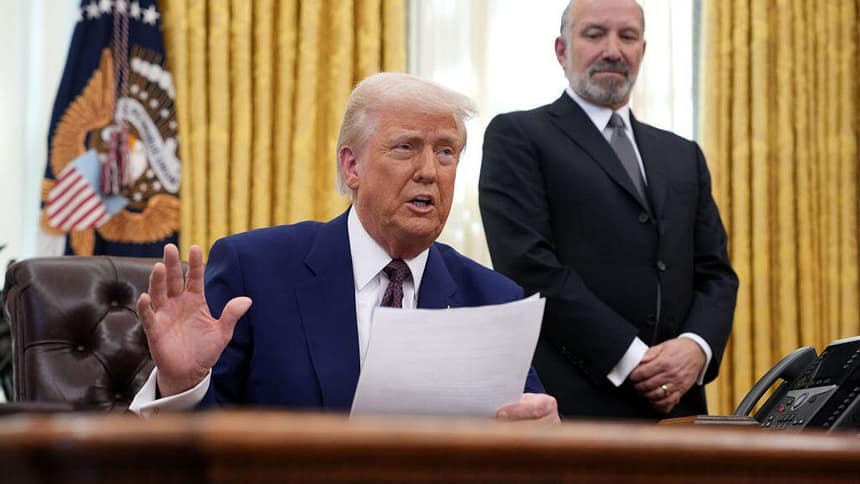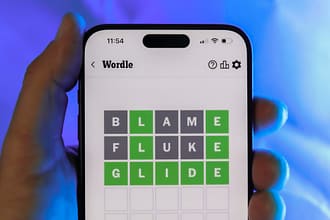President Trump turned his sights to the little-known Digital Equity Act, calling the program “racist” and “unconstitutional” in a post on his social media site Truth Social on Thursday, vowing to end the program “immediately.”
“Immediate” turned out to be the very next day, when states and nonprofits began receiving notices that said their grants had been terminated. A copy of the notice obtained by CNET states, “As the President determined and as Secretary Lutnick agreed,” the Act uses “impermissible and unconstitutional racial preferences.”
The Digital Equity Act is relatively obscure outside of broadband circles — a $2.75 billion program tucked into the $1 trillion bipartisan infrastructure bill that Biden signed into law in 2021.
People in the broadband world typically frame the digital divide — the gap between internet haves-and-have-nots — as a three-pronged issue: access to a strong internet connection, the means to afford it and the tools to use it. It’s this last component that the Digital Equity Act was created to address.
“It is absolutely insane that resources meant to help red and blue communities — everyone from local school districts and libraries to workforce training programs and Tribes — close the digital divide will be illegally blocked because the President doesn’t like the word ‘equity,’” Senator Patty Murray, a Democrat from Washington who originally sponsored the law, said in a statement.
This isn’t the first time the Trump administration has taken a wrecking ball to any broadband plan with Biden’s name on it. The $42.5 billion Broadband Equity Access and Deployment (BEAD) program, which expands internet infrastructure to rural areas, is also expected to undergo drastic changes that will shift money toward Elon Musk’s satellite internet service, Starlink.
“There’s a reason that Congress created the Digital Equity Act to be in alignment with the BEAD program,” said Maggie Drummon-Bahl, who leads digital equity programs for the state of Maine. “Without our Digital Equity Act investments, we think that our infrastructure investments are less effective.”
Trump referred to the Act as “woke handouts based on race,” but the act hardly mentions race at all. Eight “covered populations” are included in the Act, including older Americans, veterans, people with disabilities, anyone living in rural areas and “members of a racial or ethnic minority group.”
“80% of the country fits one of those groups,” said Drew Garner, director of policy at the Benton Institute for Broadband and Society. “In most states, the rural population is the largest.”
The map for populations covered by the Digital Equity Act hardly looks like a “woke” stronghold. West Virginia, Mississippi, Louisiana, Arkansas and Alabama are all in the top 10 for highest percentages of populations eligible for money, and all of them have already had their applications for funding approved.
“That’s the great irony. It’s rural residents. It’s older Americans. It’s veterans. It’s a bunch of folks that voted for Donald Trump,” said Gigi Sohn, a senior fellow at the Benton Institute.
In Maine, where 89.8% of the state is considered a “covered population,” $35 million has already been allocated through the Digital Equity Act. Amy Stone, director of the Bridgton Public Library in Maine, told me they were counting on this money for things like Wi-Fi hotspot rentals, which are now in jeopardy.
“We are in a very rural state with very limited options for internet access,” Stone said. “The hotspots are checked out all the time. So we’re going to have to do a lot of reconfiguring of our budget to see if we can accommodate that.”
The White House and National Telecommunications and Information Administration (NTIA), the organization responsible for distributing Digital Equity Act funds, did not immediately respond to a request for comment.
What’s next for the Digital Equity Act?
In the immediate future, state broadband offices and digital equity organizations around the country will likely begin laying off employees who were depending on this funding. Other impacts could be more distant, like the cancellation of digital safety classes at local libraries.
Until then, the notice will almost certainly be challenged in court, like a host of other executive actions targeting DEI initiatives.
“This is a clear unconstitutional usurpation of Congress,” Sohn said. “This is money that was authorized and appropriated by Congress for a certain purpose, and the president can’t, by tweet, nullify it.”
Senator Murray’s office said it’s plainly illegal, and some are likely to sue. “Democrats will fight this every step of the way,” Murray said in an emailed statement to the New Public.






